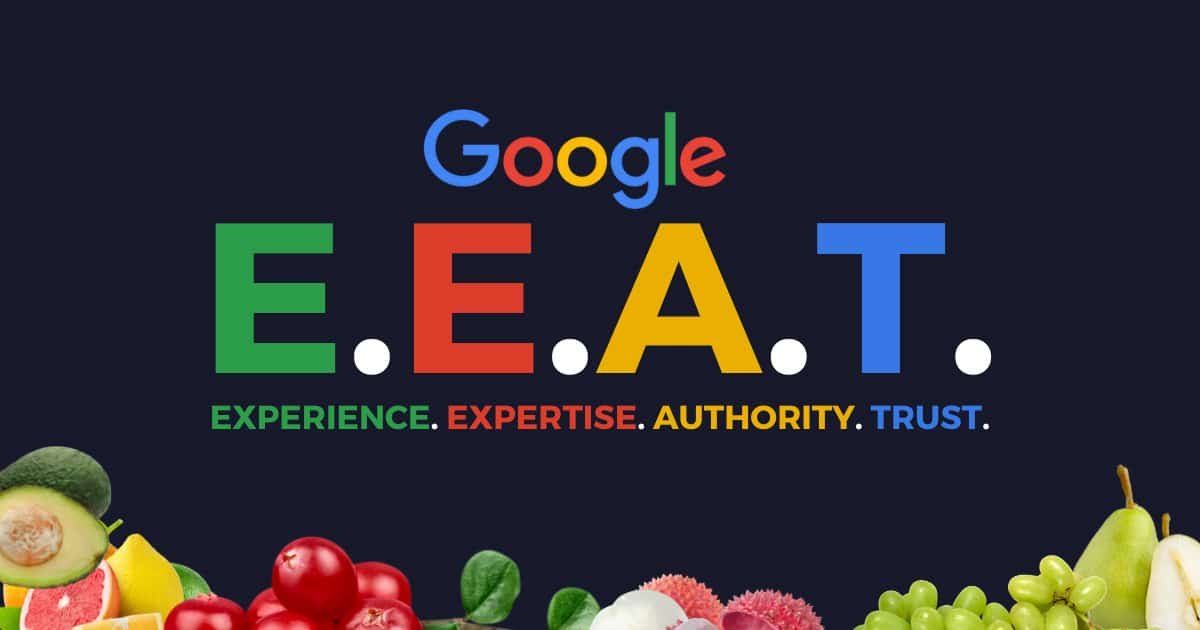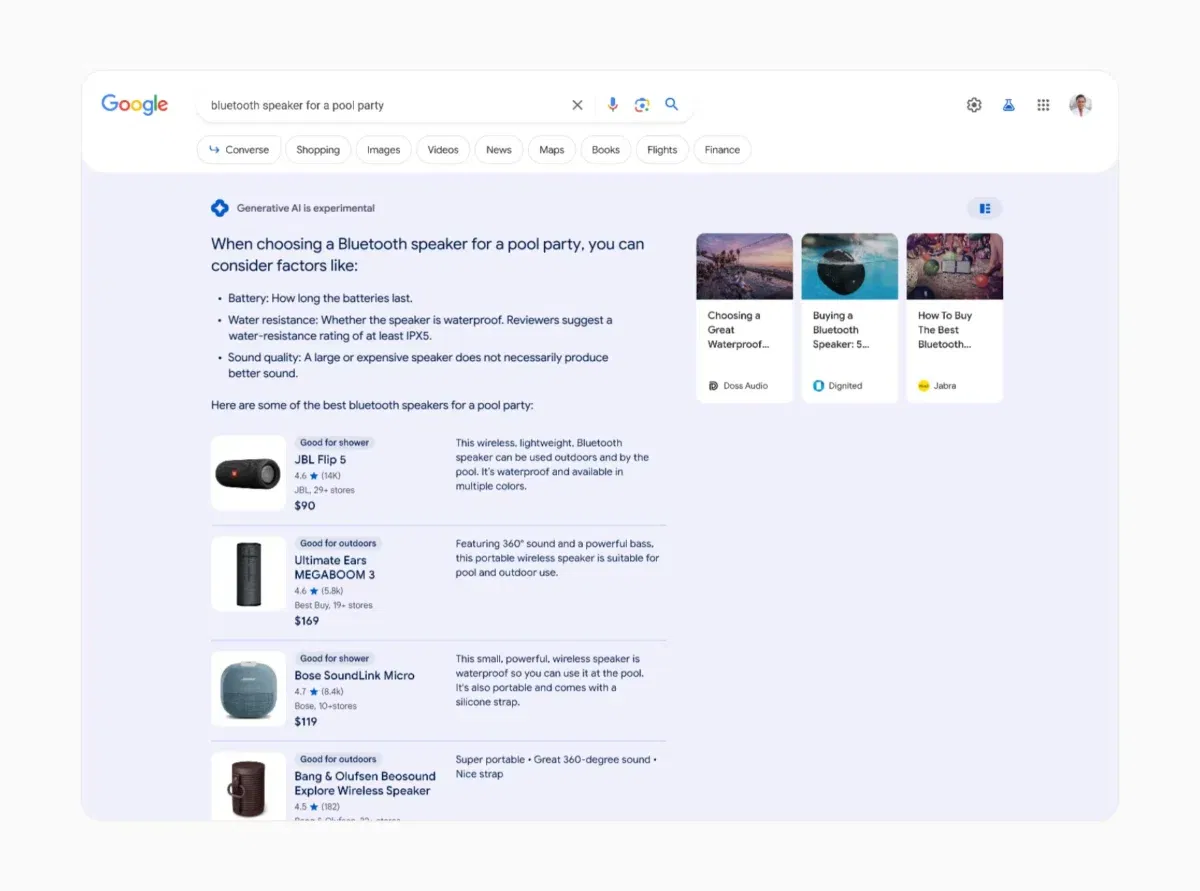
Table of Contents
Google has undergone significant evolution, impacting the way users interact with the search engine. From algorithm updates to improvements in user experience, Google continues to redefine the search landscape with its newly introduced Search Generative Experience. In this article, we delve into the generative experience offered by Google Search, exploring the latest updates, algorithm enhancements, and the role of semantic search technology.

Google Search has undergone significant evolution, impacting the way users interact with the search engine. From algorithm updates to improvements in user experience, Google continues to redefine the search landscape.
In this article, we delve into the generative experience offered by Google Search, exploring the latest updates, algorithm enhancements, and the role of semantic search technology.
With each update and enhancement, Google Search aims to provide a more intuitive and personalized search experience for users, reflecting the ever-changing nature of online information and user preferences.
As we explore the evolution of Google Search, it becomes evident that the search engine’s commitment to innovation and user-centric design has contributed to a more dynamic and engaging search experience, shaping the way users access and interact with information online.
Google Search Generative Experience: A Major Evolution
Google Search has come a long way since its inception, constantly evolving to meet the changing needs and expectations of users. With the shift from keyword-based indexing to a more sophisticated and intuitive search experience, Google has been able to provide more accurate and relevant search results. This evolution has been driven by the introduction of AI-powered algorithms, which have revolutionized the way search results are generated. These algorithms are able to understand user intent and context, providing more personalized and targeted information to users.
The introduction of AI-powered algorithms has also allowed Google Search to adapt to the ever-changing landscape of the internet. With the vast amount of information available online, the need for more intelligent and adaptive search technology has become increasingly important. Semantic search technology, for example, has enabled Google to understand the meaning behind search queries, leading to more precise and contextually relevant results. This has significantly enhanced the generative experience of Google Search, making it a more valuable tool for users.
Overall, the evolution of Google Search has been characterized by a continuous effort to improve the search experience for users. From the early days of keyword-based indexing to the introduction of AI-powered algorithms and semantic search technology, Google has remained at the forefront of search engine innovation. By providing more relevant, personalized, and contextually rich search results, Google Search continues to revolutionize the way users access and interact with information online.

Updates to Google Search Algorithm
One of the key aspects of the evolution of Google Search is the continuous updates to its search algorithm. These updates are crucial in improving the quality and relevance of search results, ensuring that users are presented with the most accurate and useful information. By constantly refining the algorithm, Google aims to provide a more satisfying and efficient search experience for its users.
Furthermore, these updates also prioritize authoritative and trustworthy content, giving preference to websites and sources that are considered reliable and reputable. This helps users find information from sources they can trust, enhancing the overall search experience. Additionally, the algorithm updates work to filter out spam and low-quality websites, ensuring that users are not presented with irrelevant or misleading content.
Overall, the updates to Google Search algorithm play a crucial role in shaping the generative experience that it offers. By prioritizing quality and relevance, while filtering out spam and low-quality content, Google continues to revolutionize the search engine user experience, staying true to its mission of organizing the world’s information and making it universally accessible and useful.
Enhancements in Search Engine User Experience
One of the key enhancements in the user experience of Google Search is the introduction of rich snippets. These are small pieces of information that appear at the top of the search results and provide users with a quick preview of the content. This feature allows users to get a glimpse of the information they are looking for without having to click on any search results, ultimately saving time and providing a more efficient search experience.
Another notable enhancement is the implementation of knowledge panels, which display relevant information about a search query in a visually appealing and easily digestible format. These panels often include images, summaries, and links to related topics, offering users a more comprehensive understanding of their search queries without having to navigate through multiple web pages. This not only enhances the user experience but also promotes a more informed and engaged search process.
Furthermore, Google Search has integrated predictive search suggestions, which anticipate user queries and provide real-time suggestions as users type. This predictive feature not only accelerates the search process but also enhances the interactive nature of the search experience, allowing users to discover new and related topics they may not have initially considered. These enhancements collectively contribute to a more dynamic and generative search experience, aligning with Google’s continuous efforts to revolutionize the search engine user experience.
The Impact of Semantic Search Technology
Semantic search technology has revolutionized the way Google understands and interprets user queries. By analyzing the context and intent behind search queries, Google can deliver more accurate and contextually relevant search results, improving the overall search experience for users.
This shift towards semantic search technology has allowed Google to move beyond just matching keywords to web pages, and instead focus on understanding the meaning and context of the user’s query. This has led to more precise search results that better align with the user’s intent, ultimately enhancing the generative experience of Google Search.
Furthermore, semantic search technology has enabled Google to better understand the relationship between different concepts and entities, allowing for more nuanced and sophisticated search results. This has opened up new possibilities for exploring and discovering information, further enriching the user experience within the evolving landscape of Google Search.
Frequently Asked Questions About Semantic Search Technology
1. How does semantic search technology impact the way Google processes user queries?
Semantic search technology has significantly transformed the way Google processes user queries by enabling the search engine to analyze the context and intent behind each query. This means that Google can now deliver more accurate and contextually relevant search results, enhancing the overall search experience for users.
Furthermore, semantic search technology allows Google to move beyond simply matching keywords to web pages, focusing instead on understanding the meaning and context of the user’s query. This shift has led to more precise search results that better align with the user’s intent, ultimately improving the generative experience of Google Search.
2. How has semantic search technology improved the accuracy of search results?
With semantic search technology, Google can better understand the relationship between different concepts and entities, leading to more nuanced and sophisticated search results. This has significantly improved the accuracy of search results, allowing users to discover information that is more relevant and tailored to their needs.
By analyzing the context and intent behind search queries, semantic search technology has enabled Google to provide search results that align more closely with the user’s intent, ultimately enhancing the generative experience of Google Search.
3. What are the benefits of semantic search technology for users?
Semantic search technology offers several benefits for users, including more accurate and contextually relevant search results. This means that users can find information that is better aligned with their needs and intentions, improving the overall search experience.
Furthermore, semantic search technology has opened up new possibilities for exploring and discovering information, enriching the user experience within the evolving landscape of Google Search. Users can now access more nuanced and sophisticated search results, allowing for a deeper understanding of the concepts and entities they are searching for.
4. How does semantic search technology contribute to the evolution of Google Search?
Semantic search technology has played a pivotal role in the evolution of Google Search by enabling the search engine to understand the meaning and context of user queries. This has led to more precise search results that better align with the user’s intent, ultimately enhancing the generative experience of Google Search.
By moving beyond just matching keywords to web pages, semantic search technology has allowed Google to provide more accurate and contextually relevant search results, improving the overall search experience for users. This has contributed to the ongoing evolution of Google Search and its ability to deliver valuable and meaningful search results.
5. How has semantic search technology impacted the user experience within Google Search?
Semantic search technology has significantly enhanced the user experience within Google Search by enabling the search engine to deliver more accurate and contextually relevant search results. This means that users can access information that is better aligned with their needs and intentions, ultimately improving the overall search experience.
Furthermore, semantic search technology has opened up new possibilities for exploring and discovering information, enriching the user experience within the evolving landscape of Google Search. Users can now access more nuanced and sophisticated search results, allowing for a deeper understanding of the concepts and entities they are searching for.
6. How has semantic search technology revolutionized the search engine user experience?
Semantic search technology has revolutionized the search engine user experience by enabling Google to move beyond just matching keywords to web pages. Instead, Google now focuses on understanding the meaning and context of the user’s query, leading to more precise search results that better align with the user’s intent.
This shift has significantly improved the overall search experience for users, allowing them to access more accurate and contextually relevant search results. Semantic search technology has played a crucial role in revolutionizing the search engine user experience within the evolving landscape of Google Search.
7. What are some examples of how semantic search technology has enhanced Google Search?
One example of how semantic search technology has enhanced Google Search is through its ability to better understand the relationship between different concepts and entities. This has led to more nuanced and sophisticated search results, providing users with a deeper understanding of the information they are searching for.
Additionally, semantic search technology has enabled Google to provide search results that align more closely with the user’s intent, ultimately enhancing the generative experience of Google Search. These examples showcase the significant impact of semantic search technology on the evolution of Google Search.
How has semantic search technology impacted the way Google delivers search results?
Semantic search technology has impacted the way Google delivers search results by allowing the search engine to move beyond just matching keywords to web pages. Instead, Google now focuses on understanding the meaning and context of the user’s query, leading to more precise search results that better align with the user’s intent.
This shift has significantly improved the accuracy and contextually relevant search results delivered by Google, ultimately enhancing the generative experience of Google Search. Semantic search technology has played a crucial role in shaping the way Google delivers search results to users, contributing to the ongoing evolution of the search engine.
What SEO features does Media Monk offer for content marketing?
Media Monk’s suite of SEO features for content marketing is extensive and tailored to enhance online visibility and search engine rankings. It includes a robust keyword insights report, which provides valuable data such as long-tail keyword suggestions, search volume, and difficulty scores. These insights allow content creators to target relevant and high-potential keywords. Additionally, the platform offers on-page SEO optimization tools, ensuring content is well-structured and optimized for search engines.
Features like structured schema markup and canonical URL functionality further refine the SEO strategy, ensuring content is recognized and appropriately indexed by search engines, enhancing its discoverability.


